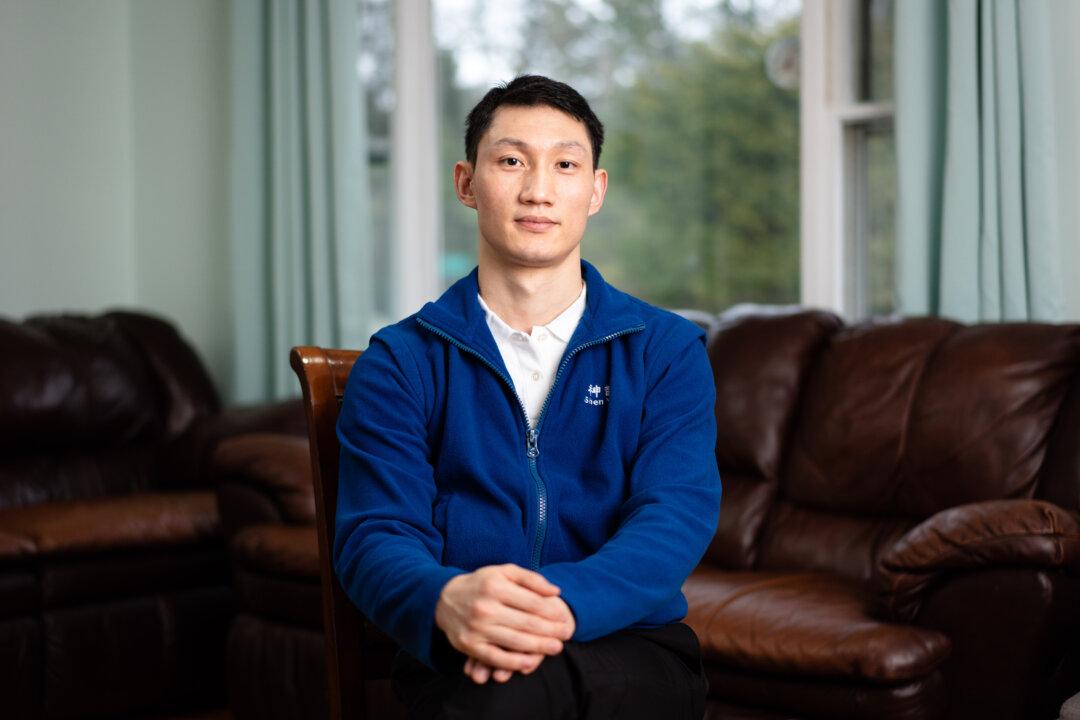NEW YORK—For the past 15 years, a cellphone was the only thing that held together Steven Wang and his family, who are an ocean away in China.
It was a phone call that brought the news of his father’s death in 2009—of kidney failure resulting from years of torture while detained in a Chinese prison because of his faith.
In another phone call, Wang learned about his mother’s arrest in July 2022. Earlier this month, he found out she had been sentenced to four years in prison—for the same reason his father was imprisoned.
It hurts Wang to think that the thread he holds to his loved ones is so fragile.
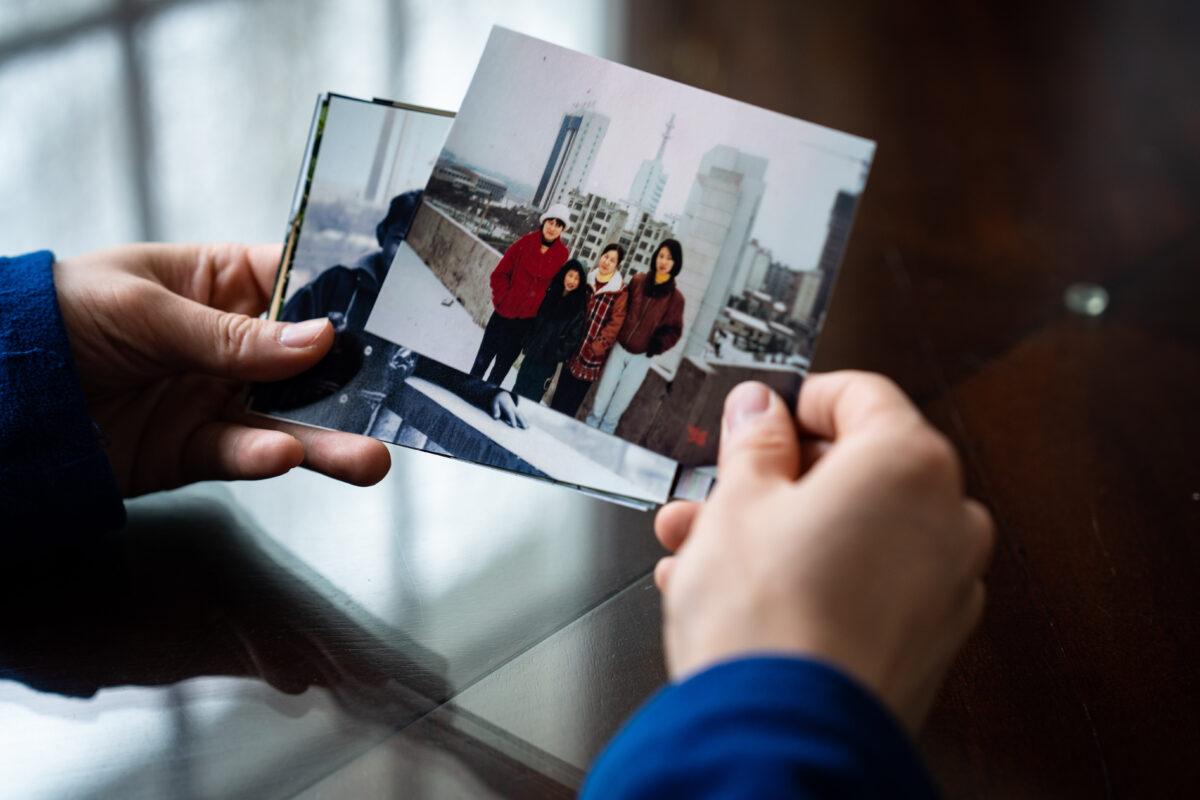
“In my family, I’m always the last to know,” Wang told The Epoch Times from his home in New York state.
Wang, a 36-year-old professional dancer and U.S. citizen, was born in Shaoyang, central China, the city he called home for the first two-plus decades of his life. But now he has no way to go back despite his burning anxiety for his family.
Like his parents, Wang practices the spiritual discipline Falun Gong, which has been brutally suppressed by the Chinese Communist Party for more than two decades.
The practice, which involves meditative exercises and moral teachings centered on the values of truthfulness, compassion, and tolerance, spread rapidly by word of mouth in China in the 1990s, with an estimated 70 million to 100 million adherents by 1999. The communist regime perceived this popularity as a threat to its authoritarian grip on power.
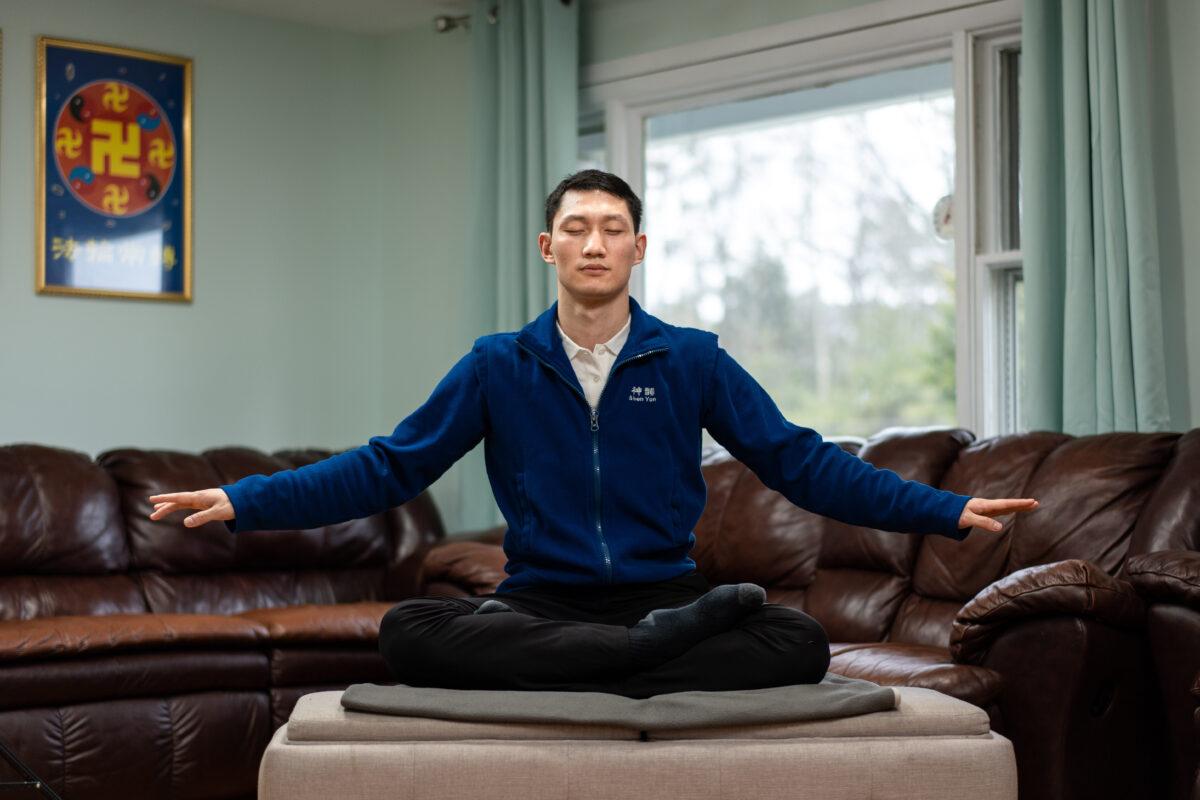
Fifteen years ago, when Wang left home for New York, his mother, Liu Aihua, accompanied him all the way to the airport.
“Take good care of yourself,” she told him during their farewells.
By then, Wang had trained in classical Chinese dance for 12 years. Eager to take his art to the next level, he was journeying overseas to join Shen Yun Performing Arts, a New York-based company seeking to revive China’s 5,000 years of traditional culture, which had been decimated by the communist regime.
A Family Changed
Both parents of Wang, who has three older sisters, were once middle school teachers. But this decision to have more children than the regime allowed under its now-abolished one-child policy cost Wang’s parents their jobs and forced them to set up small businesses to make a living. This put another strain on his parents, who also suffered from various health issues.Wang credited Falun Gong and the values of truthfulness, compassion, and tolerance for bringing harmony to his family. His father’s diabetes and his mother’s high blood pressure and heart problems went away after they took up the practice in 1996.
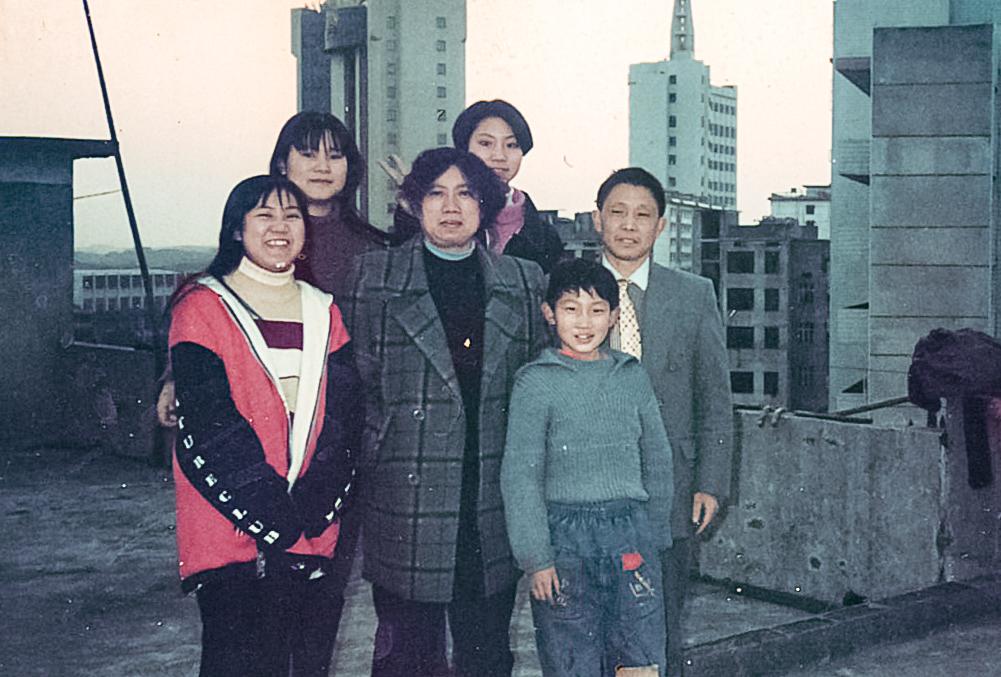
If Wang misbehaved, his parents would now talk to him with reason and hear his perspective, instead of giving him a beating as they once would have.
But the regime’s sweeping persecution in 1999 upended their peaceful family life.
In 2003, five months into Wang’s father’s fourth stint in prison, he became emaciated and developed diabetes and kidney failure.
“If this man isn’t released today, tomorrow he will be a dead body,” the prison doctor warned the guards, according to an account from Minghui, a U.S.-based website that documents the persecution of Falun Gong.
Fearing that they would be held accountable for his death, the guards freed him.
By the time Wang left China in 2008, his father’s health had deteriorated so much that he was relying on painkillers to get to sleep. Wang recalled that during school breaks in China, he would frequently massage his father’s body to ease his suffering.
Wang called home that fateful November day in 2009, hoping to hear the familiar voice of his father, whose gentle critiques and encouragement had helped steer him in the right direction in life.
Instead, his mother picked up and told him that his father had died of kidney failure.
Wang hid in a cabinet and cried for more than an hour, feeling as if “the sky had fallen.”
“Something that I had only seen on TV was all of a sudden happening to me, and suddenly, a pillar in my life was gone,” he said.
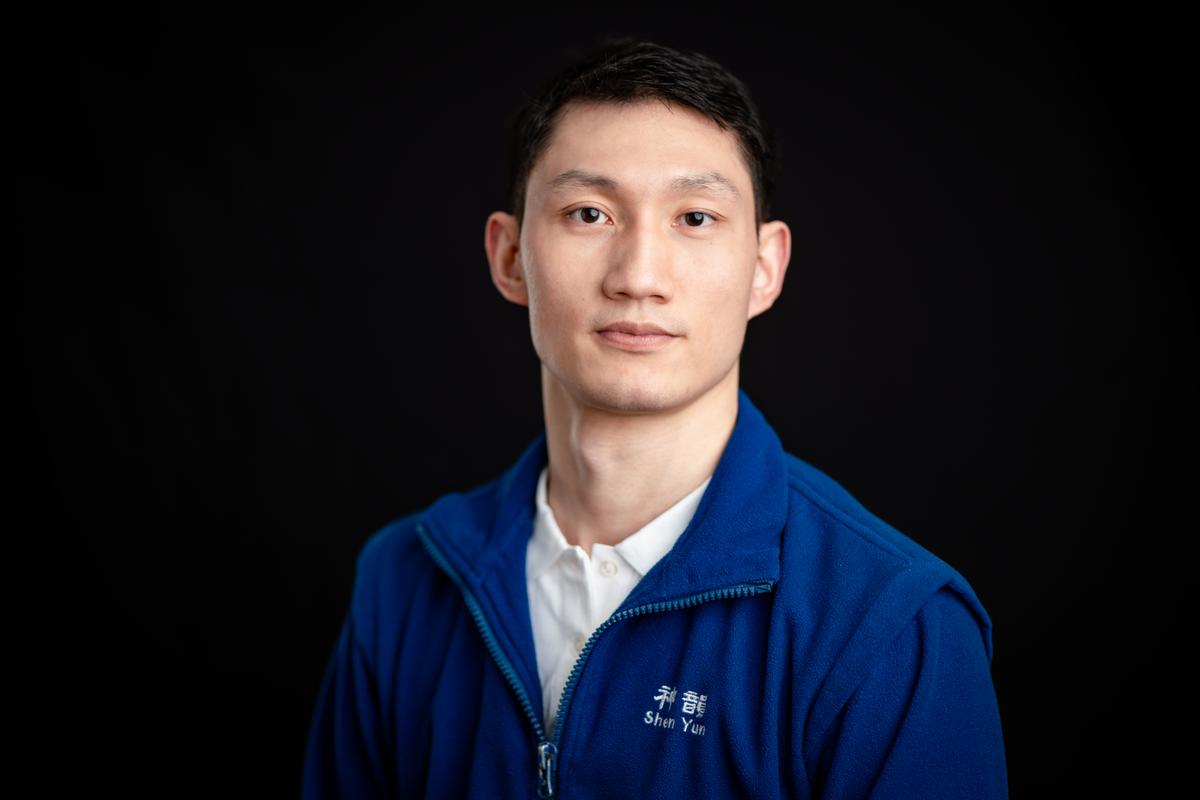
It was a month before his dance company would depart on a world tour. Wang kept himself busy jogging, training, and memorizing dance moves to escape from the pain.
Still, during the late hours of the night, the grief would come back, and all he could do was “go back to my room, wrap myself in a blanket, and swallow it down, bit by bit.”
That helpless feeling cuts him even now.
“I have a home that I can’t return to,” he said, noting the high risk of persecution.
“Even when my father died, I couldn’t see him for one last time.”
Years later, as the authorities target his mother, Wang again can only watch from afar.
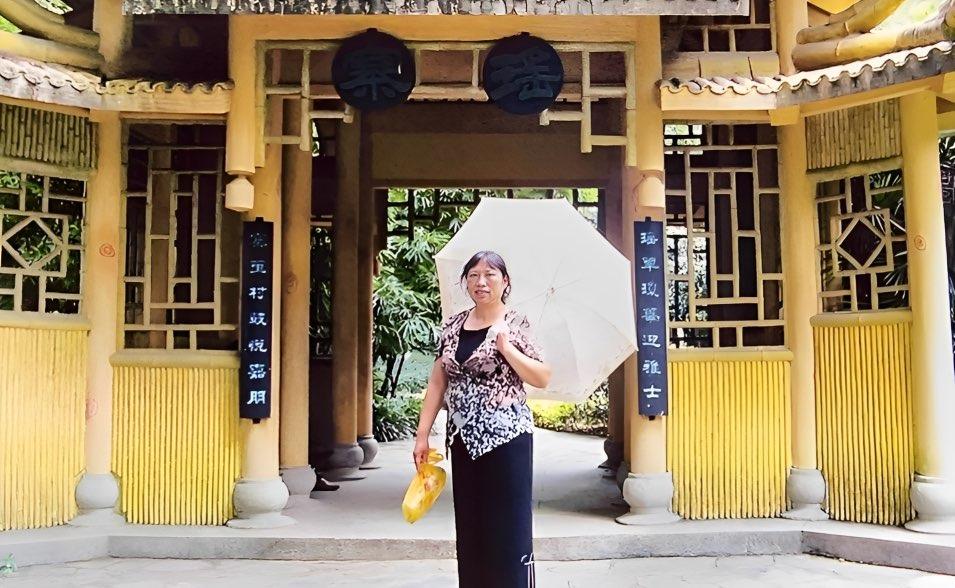
‘It Makes No Sense’
The 69-year-old Liu had undergone 11 arrests and spent about eight years in various detention facilities prior to her latest sentence.According to family accounts, the police once arrested her at a hospital where she was caring for her second daughter, who was still unconscious after delivering a baby. During another arrest, Liu was held in a dark, damp room and forced into slave labor for 17 months, making plastic flowers that the facility would later sell for a large profit. The hours of sitting on a low stool caused her lower body to swell and develop festering sores.
The criminal verdict, dated March 1, cited Liu’s distribution of Falun Gong informational materials and her discussion of the practice with locals as evidence of wrongdoing. She was also slapped with a 10,000 yuan ($1,500) fine, a hefty sum for someone living on her savings.
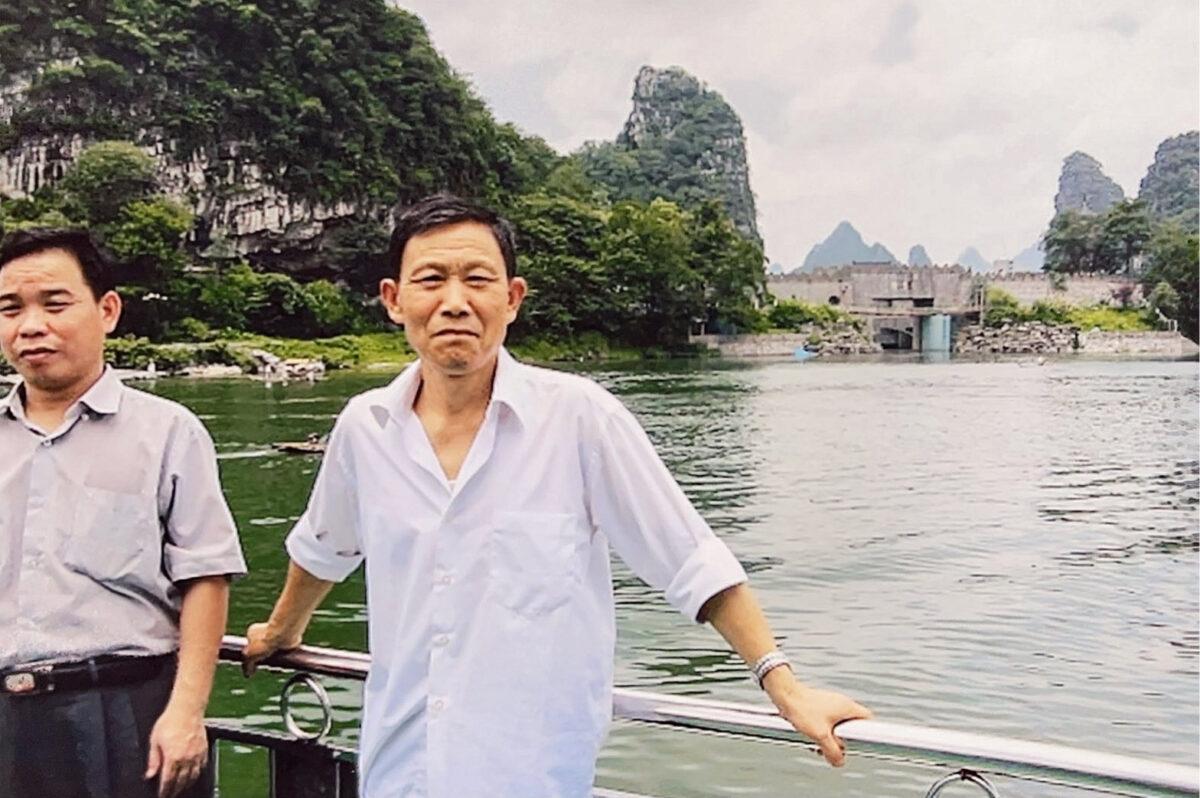
The family hasn’t seen Liu since her arrest in July 2022 and knows little about how she’s faring. For months, authorities turned away their requests for visits, citing Beijing’s strict COVID-19 protocols.
“What would you want to arrest a 70-year-old for?” Wang asked. “It makes no sense.”
‘Skin and Bones’
Wang never directly witnessed the numerous house raids and arrests his family was subjected to. He was in boarding school from the age of 12, and his parents revealed little of their suffering to him and his sisters, to allow them to focus on their studies.But still, Wang’s parents couldn’t completely shield them from the chilling reality.
During the 2002 Chinese New Year, a period when families reunite for the year’s biggest celebration, both of Wang’s parents were in custody, leaving the four siblings at home to fend for themselves. Wang was 14 at the time.
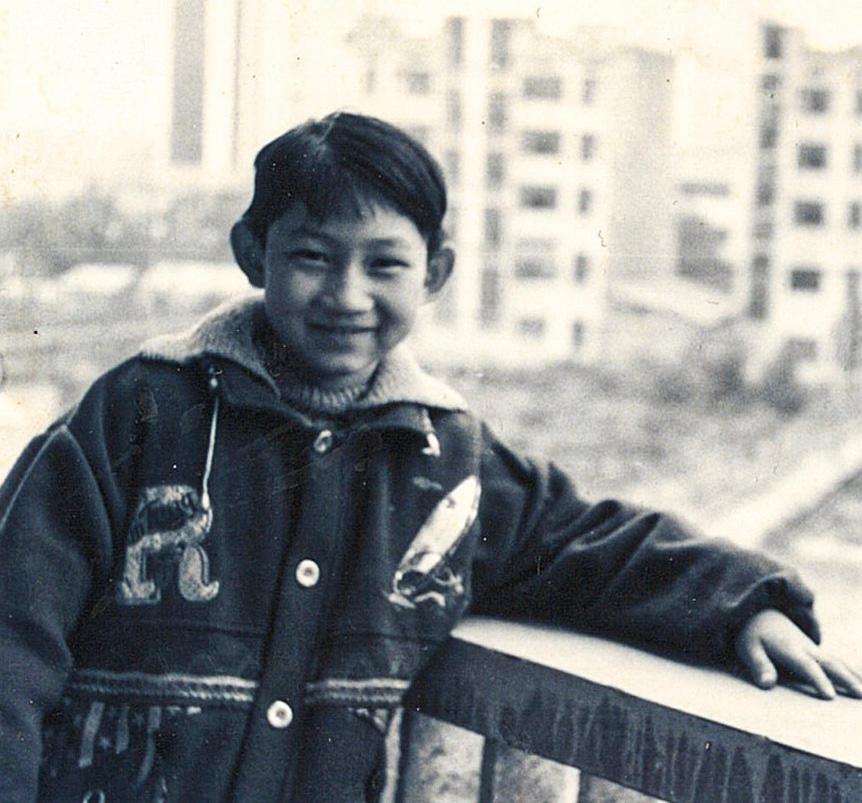
“It was the first time I felt that our family wasn’t whole,” he said.
Later that year, Wang and his sisters visited their father in prison. Wang brought him warm clothes and homemade preserved ham.
The guards didn’t let detainees talk to visitors. From across a glass panel, Wang uneasily watched his father write words on a chalkboard to communicate, shocked at how quickly prison life had reduced his father’s medium build to mere “skin and bones.”
“All I managed to say was to tell him I was well and what awards I won during dance competitions,” he said.
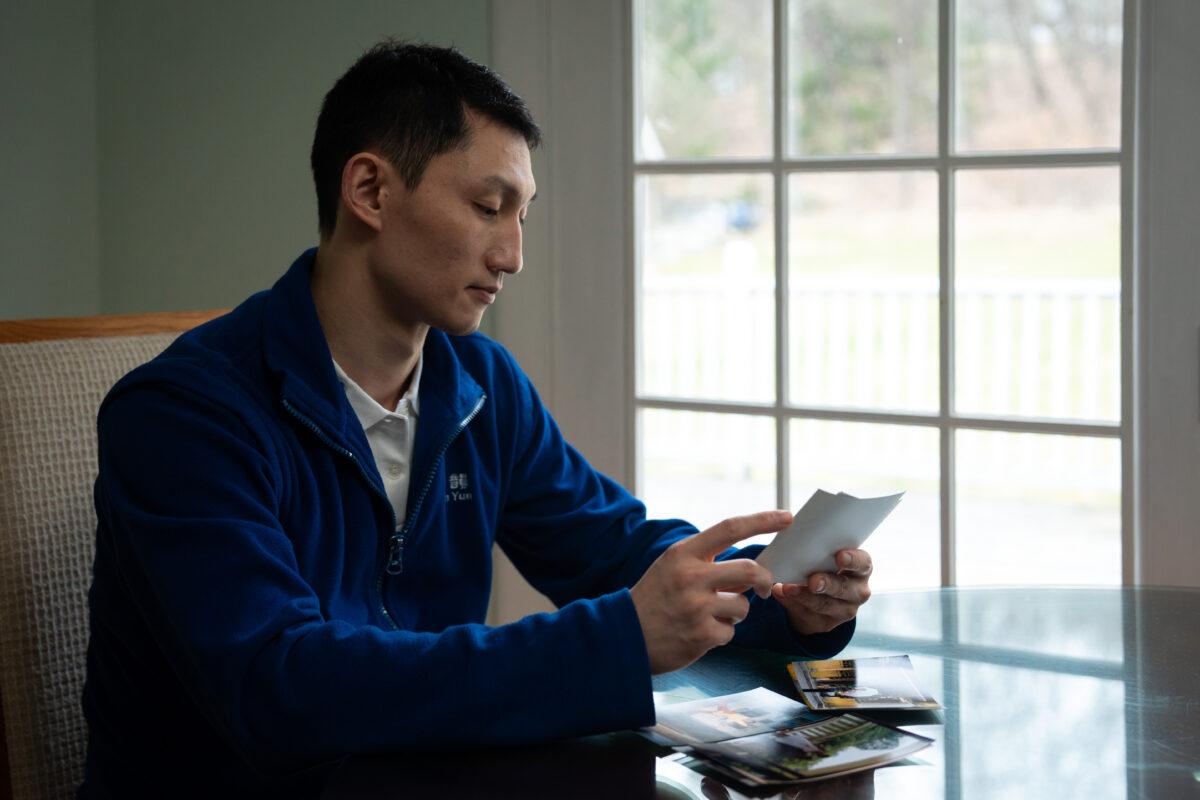
‘Millions More’
When Wang lived in China, he struggled to face his peers, finding it impossible to explain how his parents were imprisoned repeatedly despite having committed no crime. In the suppressive environment, he wasn’t free to openly discuss Falun Gong or the persecution of his parents, for fear of being targeted himself.But whatever emotions he bottled up inside, he was able to find an outlet through dancing for Shen Yun.
During the company’s 2010 tour season, Wang portrayed the father of a young girl who was beaten to death for refusing to renounce Falun Gong.
In the performance, right before the communist regime’s terror campaign is unleashed, he holds the girl in his arms and strokes her hair, a scene that reminded Wang of how his own father would carry him on his shoulder when he was young.
“It felt so blissful, so secure,” Wang said.

Living in a free country, Wang has pledged to lift the voices of those who can’t speak for themselves in communist China.
“It’s not just about my family,” he said. “Millions more families out there are facing such a predicament or worse.”
As Wang nervously anticipates more phone calls from China, he finds some comfort in knowing his mother’s resilience.
“At least she is standing by her faith and doing what she believes is right.”
